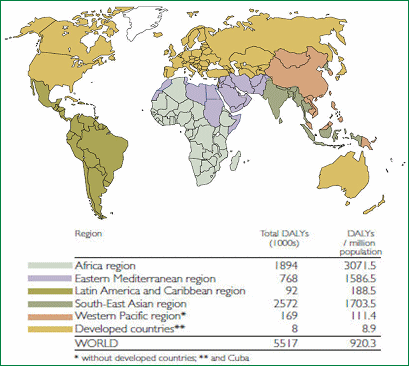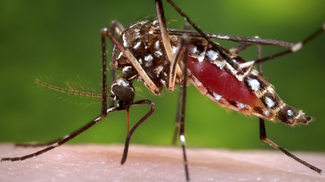|
When I first came to college to study chemistry, I intended to become a medical doctor. Three years later, I’ve distanced myself from any science courses that might require me to dissect anything and instead am interested in topics like materials science and renewable energy. While it’s easy to see the connection between those topics and climate change, an often-overlooked impact of climate change is its effect on human health – and so it looks like I’ve come full circle! The primary reason that the climate’s effect on health can be trivialized is because in well-developed countries, like the US, so many of us are protected in our homes from the elements. However, it is much more apparent in our most vulnerable populations, who may not have access to luxuries like air conditioning or in some cases, any real housing. Our last blog addressed some of these effects, especially air pollution, but I’m going to focus on infectious disease. At one point, many infectious diseases were effectively eliminated from the United States; however, the changing climate may have some role in their resurgence. The primary culprits are mosquitoes, which are capable of carrying and transmitting diseases like dengue fever. Once restricted by colder temperatures and rainfall, these insects now live in at least 28 states spanning the southern half of the U.S. On a global scale, warmer temperatures and longer summers have resulted in mosquitos being more active, increasing the risk of disease transmission to people. Likewise, West Nile Virus, also spread by mosquitos, and lyme disease, spread primarily by ticks, have seen a surge of reported cases. If you’re curious how some states are addressing the spread of infectious disease with climate change, check out some of the data compiled by the Natural Resources Defense Council here!
At this point, a lot of this data is correlative, so our understanding of the association between climate change and public health is limited to be sure. But strong, foreboding parallels exist between it and the early studies of smoking’s effect on lung cancer – we know that we are hurting ourselves. The only question is, how much?
0 Comments
Leave a Reply. |
Categories
All
Archives
March 2024
|


 RSS Feed
RSS Feed
